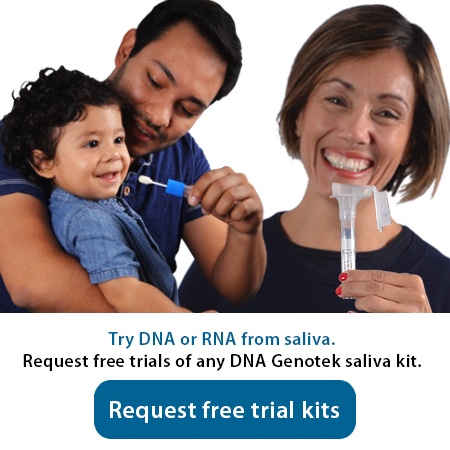2009-12-08
Earlier this year, one of our customers took advantage of a unique opportunity and turned it into a successful DNA collection event. Without advance planning, this customer was able to set up an impromptu DNA collection clinic, access volunteers who met the required profile for the research, and complete collection all in one day. Sound impossible? It's not if you're the Hospital for Sick Children in Toronto, Ontario and you have Oragene/saliva collection kits.
 The Hospital was treating an 11-year-old female patient of Sri Lankan Tamil descent who needed gene therapy treatment to save her sight. The girl had been diagnosed with Leber congenital amaurosis (LCA), a retinal disorder usually diagnosed soon after birth. Doctors at the hospital needed to confirm that a genetic mutation believed to be the cause of the condition was uncommon among Sri Lankan Tamils. If they could do that, the girl would remain in a gene therapy trial that could improve her sight, however, the deadline to have the DNA samples collected and tested was imminent.
The Hospital was treating an 11-year-old female patient of Sri Lankan Tamil descent who needed gene therapy treatment to save her sight. The girl had been diagnosed with Leber congenital amaurosis (LCA), a retinal disorder usually diagnosed soon after birth. Doctors at the hospital needed to confirm that a genetic mutation believed to be the cause of the condition was uncommon among Sri Lankan Tamils. If they could do that, the girl would remain in a gene therapy trial that could improve her sight, however, the deadline to have the DNA samples collected and tested was imminent.
Researchers at the hospital needed a control group of at least 50 Sri Lankan Tamils willing to provide a DNA sample. If the genetic mutation was common among the control group, the research team would know it is not causing the girls' disease and they could proceed with the gene therapy treatment. This would be a daunting task for any researcher but the looming deadline made it a unique challenge.
Coincidently, that week hundreds, sometimes thousands of Sri Lankan Tamils were protesting on a street near the hospital. With consent forms and Oragene kits (to collect saliva) in hand, the team from the Hospital for Sick Children went to the protest to ask for volunteers to provide a DNA sample. In a short period of time, the researchers were able to get the required 50 control samples and complete the research.
This kind of DNA collection would not have been possible without a product like Oragene. Imagine going to this protest and trying to convince the participants to leave the protest, go to the hospital and provide a blood sample. The likelihood of success would have been significantly reduced if not completely eliminated.
At DNA Genotek, we always enjoy hearing what our customers are doing with our product. This story made us so proud of this customer's achievements. I hope this story inspires you to think of new and innovative ways of collecting DNA or RNA. Have you done something unique to collect DNA samples? Do you have an idea for DNA collection that hasn't been done before? Let us know about it -- we'd love to include it in our blog.
Photo: Retina photo of a patient with Leber congenital amaurosis (LCA). Photo courtesy of National Eye Institute, National Institutes of Health


